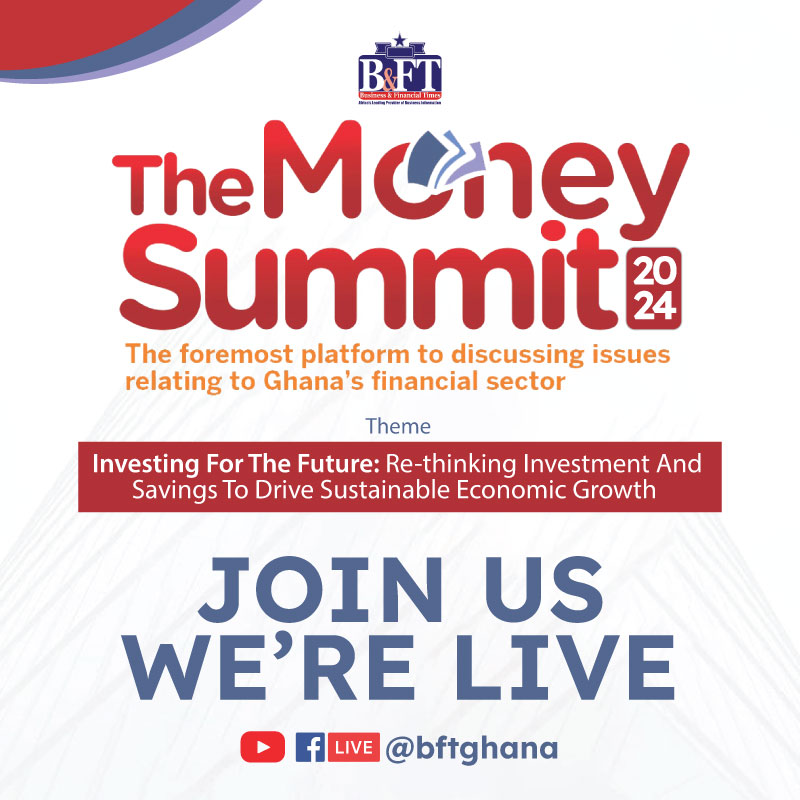Leading financial services provider, Standard Chartered Bank has shone the spotlight on the necessity of digital and sustainable financing to lift participation and financial inclusion, particularly for women and youth-owned businesses; describing them as the bedrock on which the future of commerce is anchored.
This was amplified at the inaugural Standard Chartered Digital Banking, Innovation & Fintech Festival, curated alongside the Bank of Ghana (BoG), the Monetary Authority of Singapore, Enterprise Singapore, and the SC Ventures, and formed part of events marking 125 years since the bank was incorporated in the country.
The festival sought not only to take stock of the growth if the bank – which served as the nation’s central bank until the institution of BoG in 1953. It provided a platform to highlight the bank’s leadership and innovation and, more importantly, show the strides Ghana, as a sovereign state, has made in its national digitalisation agenda and serve as a fertile ground for the cross-border pollination of ideas to shape policy.
In his welcoming remarks, Board Chair, Dr. Emmanuel Kumah highlighted what he described as the ‘enormous benefits’ of digitalisation, especially as it applies to finance, and chronicled the bank’s efforts in using digital tools to surmount structural barriers to reach the financially excluded.
“Bank branches are not always close to people – particularly women and especially those in the conservative cultures of rural regions – and it very difficult for them to leave their homes and travel long distances to find one, for basic financial services.
That is why as a bank we have made innovation a central tent of our strategy, and we are investing heavily in developing standardised digital platforms to meet the rapidly changing client needs at the right scale, and engaging our clients seamlessly across many digital channels,’ he explained.
As part of this strategy, he added, the bank is paying particular attention to the needs and opportunities for three primary demographics; the younger and digital-savvy, women, which represent the larger share of the population, and the physically disadvantaged. Whilst expressing confidence that deliberations during the festival would play a key role in defining the scale of growth and collaboration needed to drive the digital economy.
Expanding these thoughts, the bank’s Chief Executive Officer, Mansa Nettey noted that inequality, exacerbated by gaps in economic inclusion mean that there are many small businesses owned by women and young people struggling to gain access to the full complement of financial services to grow their businesses.
She pledged the bank’s support for women and small businesses with equitable access to financial services by leveraging technology as an enabler, backed by effective partnerships with key stakeholders including BoG, Ghana Interbank Payment, and Settlement Systems Limited (GhIPSS), fellow banks, telcos, and Fintechs. “We aim to drive financial inclusion within a cash lite society, promote accessible banking and connecting clients to opportunities,’ she remarked.
Touching on her outfit’s twin goal of driving sustainable development, she said: “As a financial institution, we believe that our success is contingent on the success of our community and clients, this is the reason we have remained focused on providing long term sustainable development and enhancing the wellbeing of our community and our people by putting our capital where it is most needed; to drive commerce and prosperity.”
As an example of this, she referenced a recently published independent report which indicated that the bank’s lending to the manufacturing and infrastructure services industry in the country between 2009 and 2019, generated a GDP impact in excess of GH¢2.8 billion ($500 million), or 1% of GDP.
“Our lending activities supported about 122,000 jobs in the Ghanaian economy, whilst directly or indirectly providing opportunities for us to expand our services. Through our myriad of interventions, we continue to support the empowerment of Ghanaian youth, women, and the physically impaired. These interventions, coupled with the sustainable finance solutions, have enabled us to support Ghana’s SDG aspirations,” she added.
Ms. Nettey said Standard Chartered is poised to attain net-zero by 2030, for its operations, and by 2050, for its financing, without compromising development in the country. “We are providing advisory services and financing as our clients move towards their own aspirations while ensuring that this commitment does not lag the development in Ghana.”
Senior Minister of Singapore, who doubles as the Chairman of the Monetary Authority of Singapore (MAS), Singapore’s central bank and financial regulator, Tharman Shanmugaratnam said he was particularly excited by the potential benefits from increased Africa-Asia trade arrangements, which has been made easier as a result of increased digitalisation.
“We are both emerging giants. Historically our partnerships have been very small but now digitalisation has presented us with an opportunity to build. This would be key, especially for SMEs as we connect our respective local ecosystems through digitalisation.
The financial trust corridor will serve as a digital structure for building mutual recognition for businesses and financial institutions on both sides and will develop trust and unlock trade financing for SMEs operating in Africa and Asia,” he explained.
With remittances and cross-border payments are expected to grow from US$37 trillion in 2020 to US$40 trillion in 2026, Chief Executive for Nigeria and West Africa at Standard Chartered, Lamin Manjang called for partnerships to tap into the opportunities presented, noting that, “As global businesses expand, so does the volume of cross peeper payments.”
“There is currently US$120 trillion in global B2Bpayments processed annually. There is predicted to be a US$10 trillion opportunity in the global high-value cross-border payment space. However, the many channels used to make interbank payments still leverage legacy systems that can be cumbersome, clunky, and expensive. Therefore, it is imperative that innovative players, particularly the Fintechs, start exploring strategies via application programming APIs to improve efficiency and maximise revenue potential.”
The two-day event was held under the theme ‘Shaping the next phase of Ghana’s Financial Technology Landscape for the 21st Century.’










